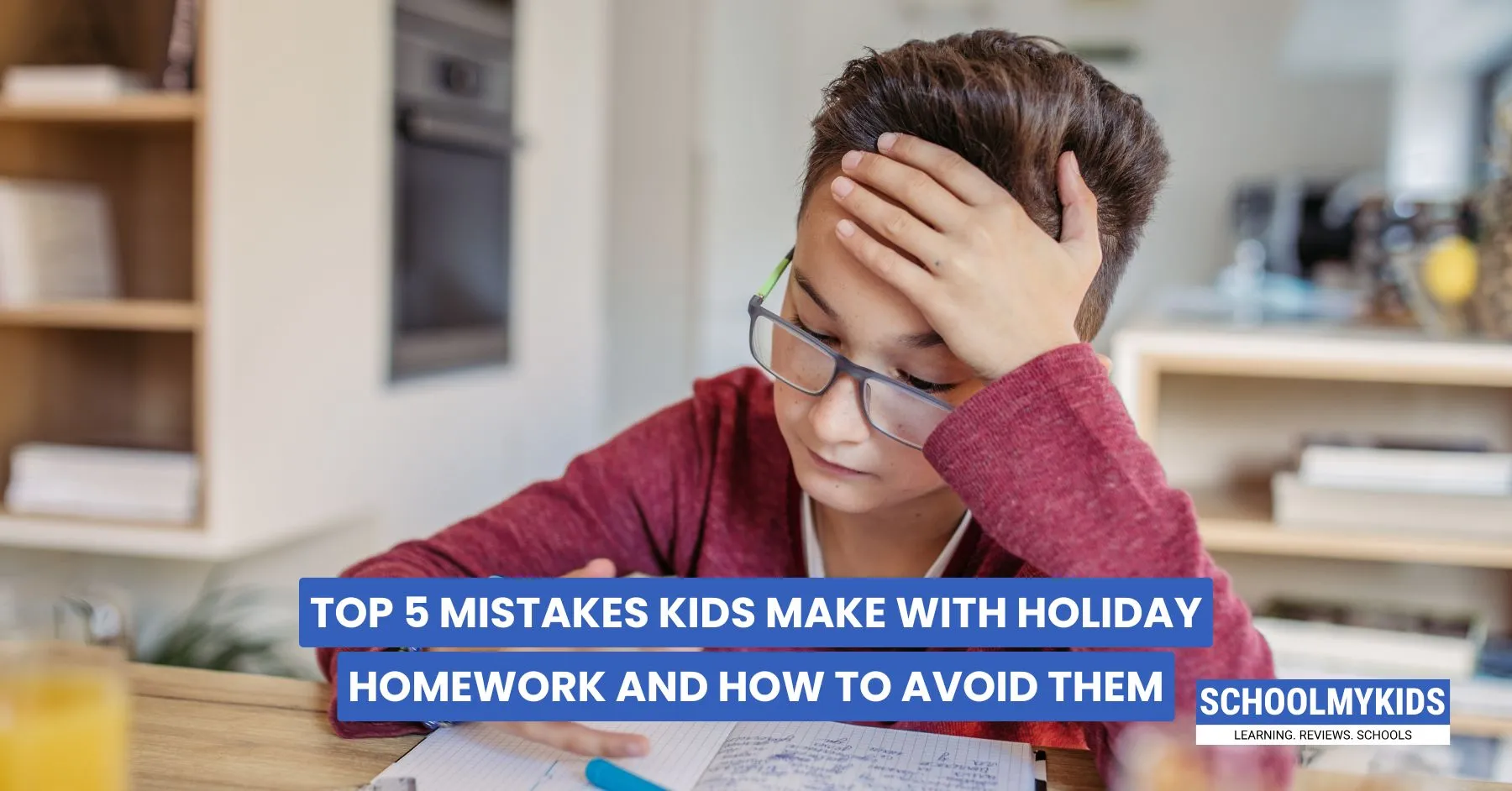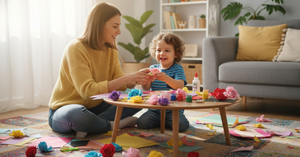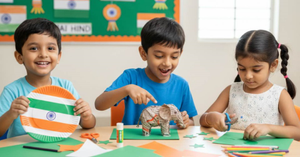Holiday homework. Just hearing those words can make any kid roll their eyes. And honestly? Parents don’t love it either. It often turns into a last-minute scramble, a lot of stress, and some unfinished pages in the notebook.
Every break—summer, winter, or even a week off for festivals—comes with its own set of worksheets, charts, and projects. Kids start with good intentions. But somewhere in the middle of playtime and screen time, it gets lost. Let’s look at the five most common mistakes kids make with holiday homework—and how parents can help make it a bit smoother (and way less stressful).
1. They Delay... and Delay Some More
Most kids do this. The first few days of the holidays feel so free. Homework feels far away. So they push it to “next week” or “after the trip.” Before they know it, school is almost back.
- Why it happens: Kids don’t mean to mess up. Time just flies. They think they’ll get to it. But the break goes by quicker than expected.
- What helps: Break it down. Instead of doing it all at once, do small parts each week. A few pages today. A project piece next weekend. Put a calendar on the fridge. Cross off what’s done. It feels good and keeps things moving.
- For parents: Don’t scold. Just sit down in the beginning and make a plan together. A little structure early on saves a lot of stress later.
2. They Google Everything Word-for-Word
Search. Copy. Paste. Done. Right? Not quite. Most teachers spot it right away. The language doesn’t sound like the child, and honestly, it misses the point of learning.
- Why it happens: They get stuck. Or bored. Or just want to be done.
- What helps: Ask your child to read about the topic first. Then, explain it in their own words. Even if it’s short or a bit clumsy, it’s better. It shows they understood.
- For parents: Ask gentle questions. “What did you learn?” “Can you tell me about it?” This makes kids think—and learn at the same time.
3. They Spend All Their Time on the “Fun” Part
Glitter pens, sketches, colored charts—they’re great. But sometimes, kids spend hours decorating one sheet and skip the rest.
- Why it happens: Creative tasks feel more like fun. So they choose that first. And then rush the writing.
- What helps: Try doing the heavier tasks early in the break. Then, move on to the creative ones. That way, there’s enough time for both.
- For parents: Help them balance. “Let’s finish the rough work first. Then we’ll paint your model together.” Make it something to look forward to.
4. They Don’t Read the Instructions Properly
This happens more often than you’d think. Kids start a task but don’t fully understand what’s expected. So they guess—or do something completely different.
- Why it happens: Sometimes, the instructions feel too long. Or a bit tricky. So they just jump in and figure it out as they go.
- What helps: Ask your child to read the instructions aloud. Slowly. Then, repeat it in their own words. If it still feels confusing, take a pause and look it up.
- For parents: Be there to help, not to take over. Say, “Let’s figure this out together,” instead of “You’re doing it wrong.” It makes a huge difference.
5. They Just Want to Get It Over With
By the end of the break, they’re done. Tired. Bored of homework. So they rush through it just to finish, often without really learning much.
- Why it happens: Kids feel holiday work is more about “getting it done” than learning. So quality drops.
- What helps: Don’t aim for perfection. Aim for honest work. Remind them it’s okay to take time. Just do a little each day and do it right.
- For parents: Praise the effort. If they tried something by themselves, even if it’s messy, that’s a win. Say things like, “I like how you explained this,” or “This is clearly your own work.” It builds confidence.
Conclusion
Holiday homework isn’t fun for most kids. But it doesn’t have to be painful. With a little help, they can finish it without losing all their playtime. And yes, they’ll still have time to watch cartoons, visit cousins, and sleep in.
Your role matters more than you think. You don’t need to do the work for them. Just guide. Support. And remind them that learning doesn’t have to be scary or perfect. Just real.








Be the first one to comment on this story.